Boundary review: Corbyn and Osborne's seats face axe
- Published
- comments
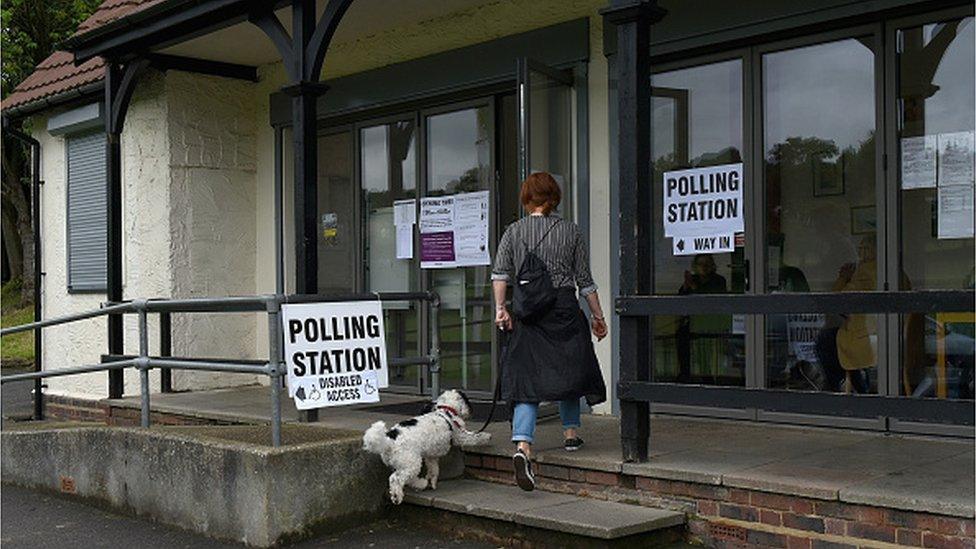
Several prominent MPs are facing reselection battles ahead of the next general election under new constituency boundary proposals in England and Wales.
Labour leader Jeremy Corbyn and ex-chancellor George Osborne are among those whose seats would be abolished.
Most constituencies are affected by the bid to cut the number of MPs in the Commons and create equal-sized seats.
Labour - expected to be hit hardest - said the proposals were "undemocratic".
But the government said they would "ensure an equal say for each voter".
The number of MPs would be cut from 533 to 501 in England, from 40 to 29 in Wales, from 59 to 53 in Scotland and from 18 to 17 in Northern Ireland.
The newly-published draft Boundary Commission proposals for England and Wales follow those for Northern Ireland, which were published on 6 September, with plans for Scotland expected on 20 October.
Despite his criticism of the proposals, Mr Corbyn said he was confident of remaining as an MP if they come into force.
The Labour leader represents the Islington North constituency in London, and much of it is expected to form part of a new Finsbury Park and Stoke Newington seat.
"We don't take into account the political ramification," says Boundary Commission
Mr Osborne, meanwhile, sees his Tatton seat in Cheshire abolished.
He said he "fully supports" the boundary review, saying it was "very unfair at present that not all constituencies of equal size".
"We've now seen the first draft of the proposals. Whatever the final boundaries, I look forward to putting myself forward to voters for re-election for Cheshire in 2020."
Among the other proposals:
The East Yorkshire seat held by Brexit Secretary David Davis, Haltemprice and Howden, is facing major changes, as is ex-Lib Dem leader Nick Clegg's constituency of Sheffield Hallam.
The Stoke Central seat held by Labour's Tristram Hunt is among six seats being abolished in the West Midlands.
Every constituency in Wales is affected, with Labour leadership contender Owen Smith's Pontypridd constituency, to the north of Cardiff, split in two.
Two Conservatives, Stephen Crabb (Preseli Pembrokeshire) and Simon Hart (Carmarthen West and South Pembrokeshire) would have their constituencies merged.
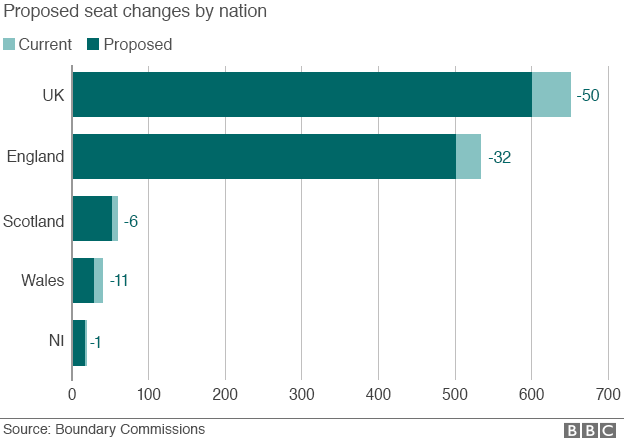
After a previous reform attempt was scuppered by the Lib Dems in coalition, the Conservatives promised to "address the unfairness of the current Parliamentary boundaries" in their 2015 general election manifesto.
A public consultation is under way into the reforms, with final proposals due in October 2018. If agreed by Parliament the new boundaries would be in place by the 2020 general election.
Labour MPs who have clashed with Mr Corbyn will be wary of facing reselections by the party membership, where the leader's support is concentrated.
Under existing Labour Party rules, if a new constituency contains 40% or more of a previous constituency, that seat's MP is entitled to seek selection.
Jeremy Corbyn: "You cannot deliver a fair and democratic result on the basis of information that is a year out-of-date"
Darren Williams, on Labour's ruling body, said the boundary changes "present an opportunity" for Labour to select parliamentary candidates who support Mr Corbyn.
Speaking to BBC Radio 4's Today programme, he said that some MPs' behaviour had been "shocking" and disloyal to the leadership and members had a right to have a say.
Where there was substantial change he said he would welcome a "full open selection".
Mr Ashworth said Mr Corbyn's team would be "tearing their hair out" at that suggestion, saying it was not position of the leader.
"This is not about de-selecting MPs and if people think it is they'll be in for a shock," he said, adding that there were rules in place allowing MPs to contest seats "where they've got a claim".
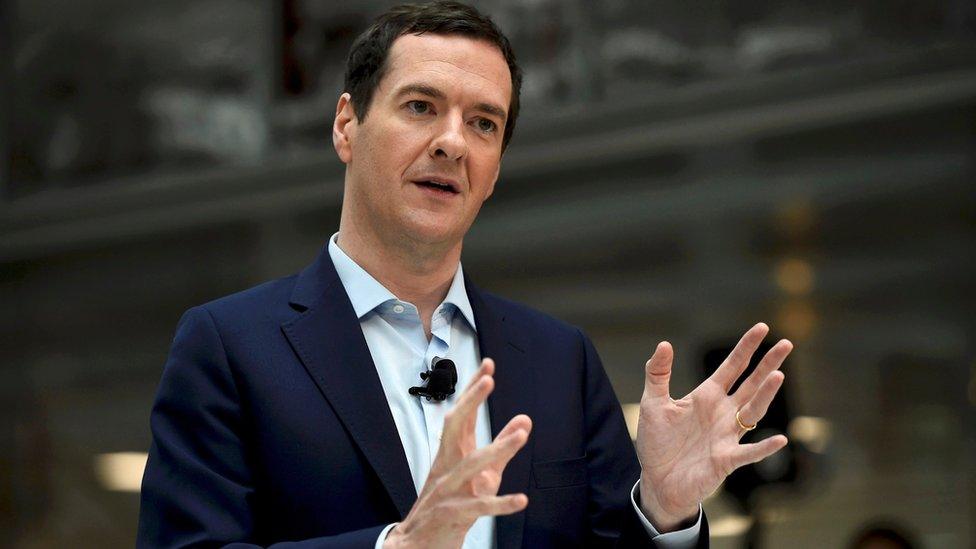
George Osborne's Tatton seat is due to be abolished under the Boundary Commission proposals
The reduction in the number of seats leaves both Labour and Tory colleagues competing for constituencies in some areas.
Conservative chairman Sir Patrick McLoughlin said the party would follow a policy of "no colleague left behind" to minimise the disruption to sitting MPs.
"This constructive approach is in strong contrast to the Labour Party which is riddled with infighting and threats of deselection," he said.
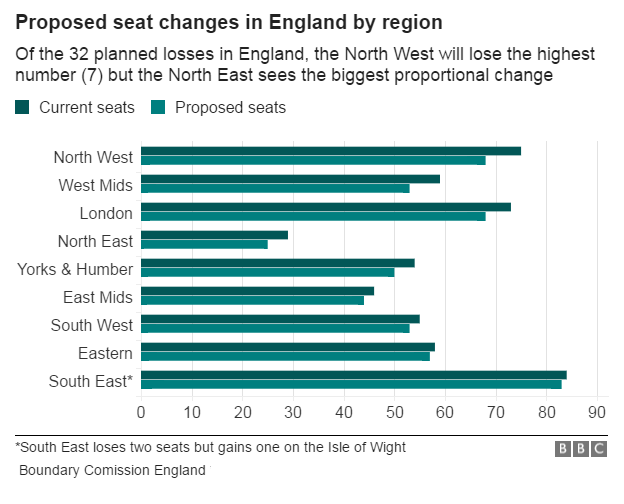
He welcomed the proposals, saying without them MPs could have ended up representing constituencies based on data that is over 20 years old.
But opposition parties criticised the decision to base the review on electoral data from December 2015, saying this was out of date because it did not include nearly two million additional voters who registered ahead of June's EU referendum.
The Boundary Commission for England said government legislation required it to use the December 2015 data.
With four exceptions, every seat in the UK will have no fewer than 71,031 and no more than 78,507 electors.
'Left out'
Labour is forecast to be worst affected by the changes, as a larger proportion of its seats contain fewer than the prescribed minimum number of voters.
According to a seat-by-seat analysis , externalby YouGov research director Anthony Wells, who runs the UK Polling Report website, Labour would have 28 fewer MPs if the 2015 general election had been run on the new boundaries.
The Conservatives would be down 10 seats and the Lib Dems four.
However, the assessment does not take into account the possibility that people might vote differently if they lived in a different constituency.
Labour shadow minister Jon Ashworth said: "Constitutional changes should be done fairly and consensually, to ensure that everyone is given a voice.
"There is nothing fair about redrawing boundaries with millions left out, and reducing the number of elected MPs while the unelected House of Lords continues to grow."
"These changes are not about fairness to voters, they are about what is best for the Tory Party and they must not go ahead. The commission must rethink and ensure that no elector loses out."
'Votes won't count'
The Liberal Democrats said they were "confident" of retaining their eight seats under the new boundaries, but criticised the review.
"Tory claims that this process will lead to 'equal votes of equal value' are plain wrong," said a party spokesman. "This process will still leave a plethora of safe seats across the country, and millions of votes which don't count."
The Electoral Reform Society criticised the decision to base the new boundaries on registered voters, rather than the actual population, saying this "risks skewing our democracy".
Conservative Constitution Minister Chris Skidmore said the government was "committed to ensuring fair and equal representation for the voting public across the UK is in place by the next general election".
He said the process would save taxpayers £66m over five years by cutting the number of MPs, adding: "As it stands, some constituencies have twice as many electors as other constituencies and that cannot be right."
But secretary for the Boundary Commission in England Sam Hartley said the number of constituents for each seat on the UK mainland ranged from about 55,000 to 90-95,000 and the review was an attempt to standardise that.
The commission did not take political ramifications into account, but took an independent view, he stressed.
People could give their feedback online, external or to staff as they travelled around the country during the 12-week consultation, he said
2015 election results map
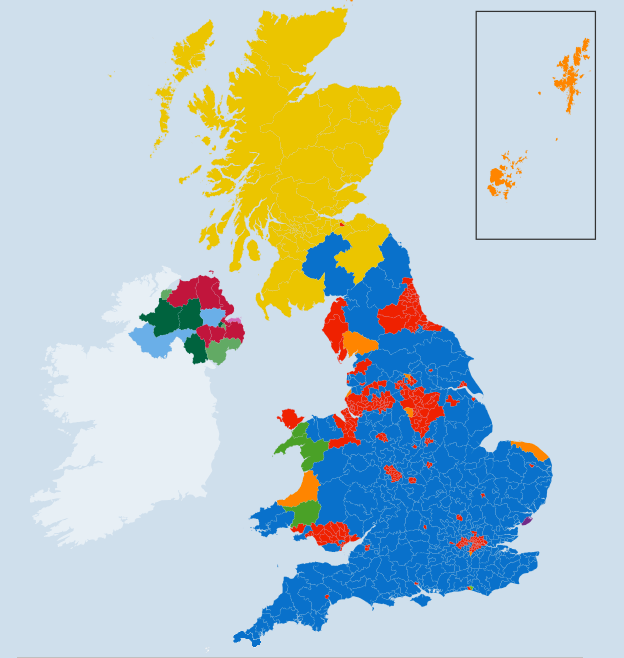
Conservatives got 11.3 million votes and Labour 9.3 million - in third place was UKIP with 3.8 million
- Published13 September 2016
